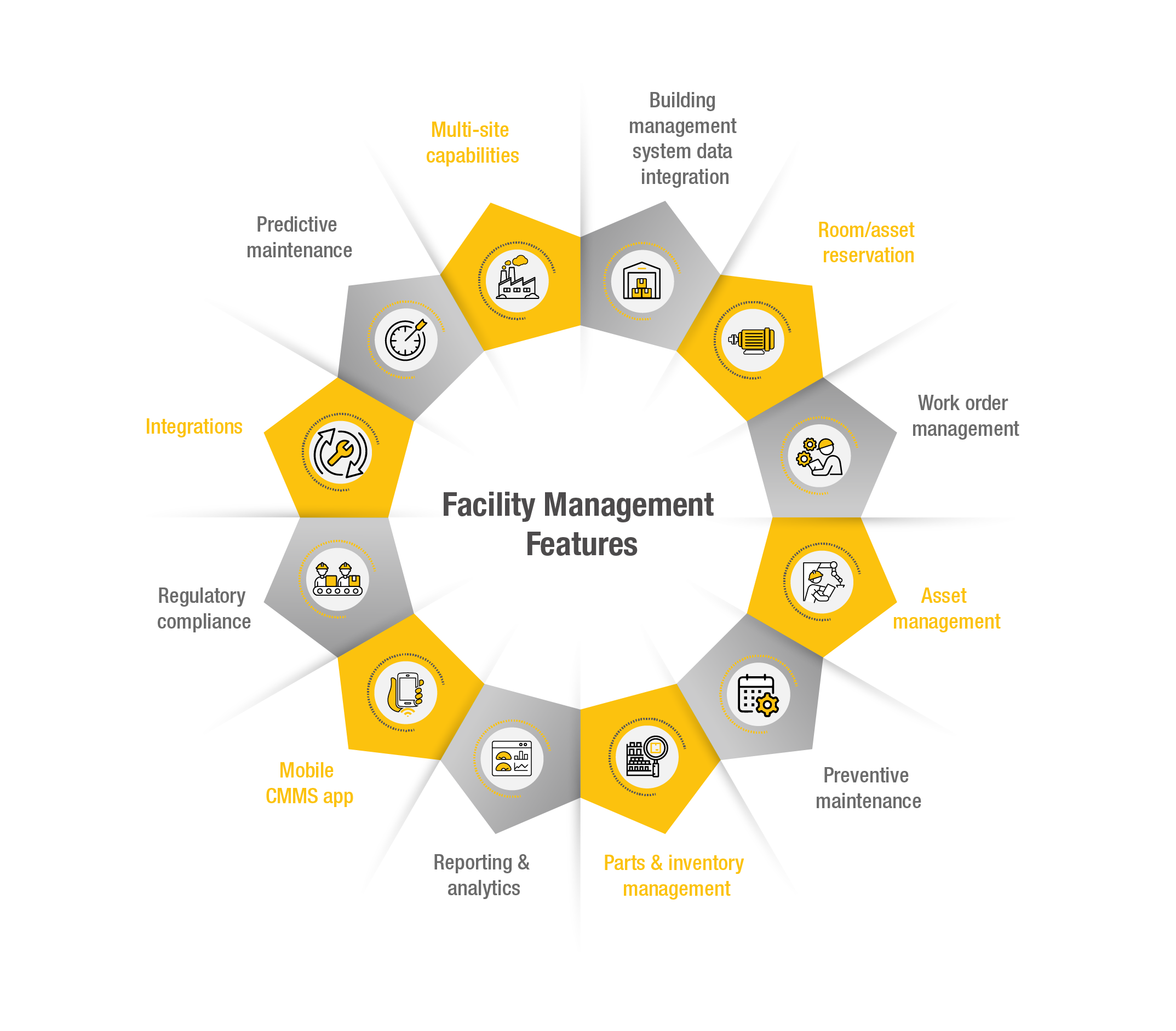Facility Management-- Crucial Solutions for Reliable Workflow
Facility Management-- Crucial Solutions for Reliable Workflow
Blog Article
Trick Fads Shaping the Future of Facility Monitoring in 2024
As we look in advance to 2024, the landscape of center administration is poised for substantial improvement, driven by a number of essential trends. The assimilation of wise building innovations and a change towards data-driven decision-making assurance to improve operational efficiency while prioritizing sustainability in technique.
Smart Building Technologies

Smart building innovations include a broad range of systems, consisting of smart lights, HVAC controls, and safety systems. By incorporating these systems, center supervisors can monitor and adjust parameters in real-time, causing significant reductions in power waste and functional prices. As an example, smart sensors can find tenancy degrees and change illumination and temperature level appropriately, guaranteeing that energy is only used when necessary.
Additionally, these technologies help with enhanced information collection, enabling organizations to track use patterns and identify opportunities for more enhancements. The application of smart structure modern technologies not only contributes to sustainability objectives yet likewise creates healthier workplace that can improve employee performance and contentment.
As we relocate right into 2024, the adoption of clever building modern technologies will likely speed up, showing a more comprehensive shift towards even more intelligent, receptive, and lasting center management techniques.
Data-Driven Choice Making
Increasingly, companies are leveraging data-driven decision making to boost facility administration techniques. By utilizing data analytics, center managers can derive workable insights that significantly enhance functional effectiveness and resource allocation. The combination of advanced innovations, such as IoT sensing units and real-time monitoring systems, enables the collection of huge amounts of data on structure performance, occupancy prices, and energy usage.
This wealth of info permits center supervisors to determine fads, predict maintenance requirements, and proactively address concerns prior to they escalate. Predictive analytics can anticipate tools failures, decreasing downtime and fixing prices. Furthermore, information visualization tools help with far better interaction amongst stakeholders, guaranteeing that notified choices are made collaboratively.
Additionally, data-driven approaches boost strategic planning by enabling facility managers to examine the performance of existing practices and make informed choices relating to financial investments in modern technology or framework. As companies significantly focus on operational excellence, data-driven decision making is positioned to come to be a keystone of effective facility administration strategies in 2024 and beyond. Ultimately, the ability to leverage data successfully will equip companies to produce extra efficient, productive, and resistant centers.
Sustainability and Eco-friendly Practices
The emphasis on data-driven decision making normally straightens with the expanding focus on sustainability and green practices within center management. As organizations increasingly focus on ecological obligation, facility managers are leveraging analytics to enhance resource use, minimize waste, and reduce carbon footprints. This calculated technique makes it possible for the combination of energy-efficient systems, such as LED lighting, clever cooling and heating controls, and renewable power resources into facility procedures.
Additionally, the execution of sustainable practices prolongs beyond power intake. Center managers are taking on green products and promoting reusing initiatives to produce a circular economy within their centers. This not only boosts the environmental account of the company yet likewise cultivates a culture of sustainability amongst employees.
Conformity with environmental regulations is one more vital facet driving the adoption of environment-friendly methods. By using information analytics, facility managers can check compliance metrics and determine areas for improvement, guaranteeing adherence to regional and international sustainability standards.
Crossbreed Job Models
A considerable change towards crossbreed work designs is improving the landscape of center management in 2024. This paradigm incorporates remote and in-office find more information job, demanding a reevaluation of space usage, resource appropriation, and employee interaction methods. Organizations are significantly identifying the value of flexible offices that provide to varied needs and preferences.
Center managers have to adapt by applying flexible workplace designs that sustain collaborative initiatives while providing areas for focused job. This includes the combination of technology to assist in seamless communication and collaboration amongst remote and in-office workers. Smart structure services, outfitted with analytics and sensing units, permit for real-time tracking of area use, enabling companies to optimize their atmospheres successfully.
Furthermore, crossbreed job models stress the requirement for reliable facility management that prioritizes worker experience. This incorporates not only modern technology and area design however additionally the development of policies that advertise a well balanced work-life dynamic. As firms browse this transition, the function of center management ends up being essential in developing an agile workplace that fosters productivity and drives organizational success. Fundamentally, the crossbreed job design is revolutionizing facility administration, motivating a positive technique to satisfy the advancing needs of the labor force.
Enhanced Owner Wellness
As companies welcome hybrid work models, an enhanced concentrate on occupant wellness is coming to be important to facility management approaches. Facility Management. This change recognizes that a healthy and balanced and completely satisfied labor force directly affects efficiency and retention rates. Center managers are currently prioritizing environments that promote mental and physical wellness, integrating components such as natural illumination, biophilic style, and available wellness sources

Technology plays a critical role in this advancement. Smart building systems can keep track of ecological factors and adjust settings in real-time, ensuring optimum convenience degrees - Facility Management. In addition, feedback systems, such as tenancy sensing units and staff member studies, enable facility managers to continually improve wellness campaigns based upon occupant needs.

Verdict
In 2024, the future of facility management will be considerably influenced by great site the assimilation of wise building innovations and data-driven decision-making, promoting enhanced operational efficiency. These trends jointly emphasize the advancing landscape of facility administration in reaction to contemporary challenges and possibilities.
Facility managers are adopting environmentally friendly materials and advertising reusing efforts to create a round economic situation within their facilities.A significant shift towards hybrid job designs is reshaping the landscape of center administration in 2024.In addition, crossbreed work designs highlight the demand for reliable facility administration that prioritizes staff member experience.As companies embrace hybrid job designs, an enhanced focus on resident wellness is ending up being essential to facility management click over here techniques.In 2024, the future of center administration will be substantially influenced by the assimilation of smart building technologies and data-driven decision-making, cultivating enhanced functional efficiency.
Report this page